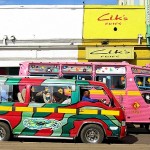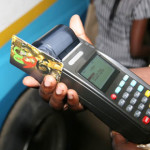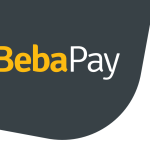NAIROBI, Kenya — On the gritty streets of this capital city, the battle for Kenya’s future may come down to Hitler versus Google.
Hitler is a matatu, electric raspberry in color, one of the thousands of minibuses that serve as Nairobi’s subway system. Its owner says he meant no offense in naming his bus after a genocidal maniac. He simply liked what he called “those funny, funny names.” Hitler has been misbehaving lately, refusing to adopt a new technology that could revolutionize one of East Africa’s most lawless and lucrative cash-based industries.
Google, which some could argue also has a funny, funny name, has been pushing the new technology: a little green transit card that will replace cash payments and track every transaction on the minibuses, making it much harder to bribe police officers and much easier for the government to capture millions of dollars in taxes. But despite Google’s substantial investment and the Kenyan government’s deadline for all matatus to go cashless by July 1, Hitler is the norm, not the exception.
Google’s little green card has incited strong resistance, with the vast majority of Kenya’s matatus still dealing in their preferred currency — grubby bills — as they zoom around Nairobi’s streets stuffed with passengers, flitting in and out of traffic like a bunch of fleas on methamphetamines.
“People thought Google was crazy to go into Kenya’s transport sector,” said Dorothy Ooko, an executive at Google’s 40-person office in Nairobi. “When we first got involved, nobody wanted to touch this.”
Google is not giving up, and the struggle to modernize Kenya’s unruly matatu trade illustrates the challenges of superimposing cutting edge technology on some of the poorest countries in the world. Across the continent, the analog Africa of old is racing, at variable speeds, toward a digital future. Rwanda has invested heavily in high-speed Internet even though most Rwandans are still peasants swinging muddy hoes. In the Democratic Republic of Congo, women sell $500 iPhones from little kiosks lit by stubby candles.
Kenya is not as poor as those countries; the average Kenyan makes about $5 a day. It is also a world leader in mobile money transfers and boasts one of the highest rates of Internet usage in sub-Saharan Africa. Some matatus even have Wi-Fi. Though the Kenyan government clearly has its hands full with rising ethnic tensions, a reinvigorated political opposition and a recent spate of terrorist attacks, President Uhuru Kenyatta, a Twitter addict, has made transforming the way his 45 million citizens interact with technology one of the cornerstones of his presidency.
Many of his new initiatives, though, have crashed into messy reality. Take Mr. Kenyatta’s campaign pledge last year to buy every Kenyan elementary school student a new laptop. They are still waiting because the contract may have been improperly awarded to an Indian firm and now is tied up in a legal dispute. So, too, is Kenya’s effort to migrate to digital TV. When Mr. Kenyatta’s government recently announced it would advertise some government business online instead of taking out expensive newspaper ads, the Kenyan news media howled, saying the government was trying to bankrupt them.
“What we are trying to do,” said Manoah Esipisu, a government spokesman, with a sad shake of the head, “is to minimize human contact.”
The matatu industry may be the best example. Millions of commuters use matatus everyday. Glassy-eyed conductors shanghai hapless passengers from the curb into shuddering minibuses that zigzag through lines of cars, sometimes even jumping up on the sidewalk. The matatus are loud in every way: blaring music, crazy paint jobs, wild names (Gangsta, Psycho, I Feel Nothing). But they also kill. Because owners typically demand from the crews a flat fee for using their buses for the day, the drivers and conductors squeeze every cent they can from passengers by stuffing them in as tightly as possible and getting them to their destination at deadly speed. A single accident can kill a dozen or more people. If a cop stops a matatu for speeding or overloading, no problem. The driver just shoves a fistful of Kenyan shillings out the window.
The other day, Hitler’s driver, a short, chatty guy named Nicholas, was breaking about five laws at once: talking on his phone, running red lights, pumping Rihanna way too loud, not wearing a seatbelt, and cutting off other cars. Nicholas preferred that his last name not be revealed, lest he face consequences for his merciless style of dispatching with traffic.
The idea to use technology to tackle the matatu problem started on a rainy day a couple of years ago when some executives at Google were staring out their plate-glass windows at the matatus stacked up on Uhuru Highway, watching passengers pay double for a ride (matatus always jack up fares on rainy days). The Google executives said, What about a transit card?
With engineers from a Google lab in Zurich, the Kenya team helped design a special plastic card that uses near field communication technology, so you do not even have to swipe the card, just rub or tap it. Google made a simple app for matatu conductors to use through an Android phone. The Kenyatta government was thrilled. The plan was to digitally monitor all matatu activity, eliminate robberies and take away the incentive to drive recklessly. (Without cash, the matatu drivers and conductors would be switched to regular monthly paychecks.) The government was eager to rake in taxes from an industry with an estimated $2 billion turnover, though since most of it is done in worn-out bills, no one really knows.
Google provided the technology for free, with one condition: Everyone who wants a new BebaPay card (“beba” means “carry” in Swahili) must sign up for Gmail, the company’s free and ubiquitous email service.
But the matatu owners did not want to be Google users.
“Kenya is a cash-based economy!” yelled one conductor the other day, when asked if his bus accepted BebaPay cards. A few dozen bus lines said they used the cards, but most matatu conductors scornfully waved it away. Other companies have unveiled competitor cards, but even fewer commuters seemed to be using those. The government, in a bow to the power of the matatu cartels, has extended the deadline for several months, saying it needs to rethink implementation.
Hitler’s owner, Joram Kamau, is yet to be convinced. As for the name of his bus, he had a vague awareness of the atrocities orchestrated by Adolf Hitler but never heard of the Holocaust. It was not something they focused on in Kenyan schools.
“When I was little,” Mr. Kamau said, “I fought a lot. I was really tough. The kids in my neighborhood called me Hitler.”
So when he bought his first matatu two years ago, he named it after himself. “Hitler” is painted on the windshield in 7-inch-high letters and stitched into every seat.
Hitler may go cashless, one day.
“I just got the paperwork,” Mr. Kamau said. “We’ll see. I’m open to it.”













